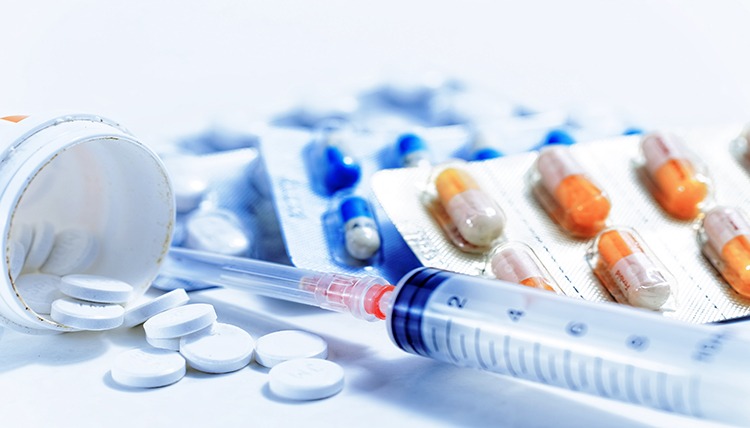Drug Development and the Impact of COVID-19
With a cost of $2.6 billion to bring a new drug to market, a slowing of drug-development activities can have a significant cost to both pharmaceutical companies and CDMOs/CMOs. To address impacts of the novel coronavirus (COVID-19) on clinical trials, EU regulatory authorities and the FDA have issued guidance on conducting clinical trials during the COVID-19 outbreak.
Challenges in clinical development
Clinical trials are the engine guiding drug development and securing and retaining patients for clinical trials and following set protocols for clinical trials are crucial parts of the drug-development process. To advise companies on unique circumstances in the conduct of clinical trials, including on patient enrollment and retention, stemming from COVID-19, both the European Medicines Agency and the US Food and Drug Administration (FDA) have issued separate guidances to advise pharmaceutical companies.
EU authorities issue guidance
The European Commission, the European Medicines Agency (EMA) and the national Head of Medicines Agencies (HMA) have published (as of March 20, 2020) new recommendations for sponsors on how to manage the conduct of clinical trials in the context of the coronavirus disease (COVID-19) pandemic.
“The impact of the pandemic on European health systems and more broadly on society, will make it necessary for sponsors to adjust how they manage clinical trials and the people who participate in these trials,” said the EMA in a March 20, 2020 statement.
The guidance provides concrete information on changes and protocol deviations that may be needed in the conduct of clinical trials to deal with extraordinary situations, such as if trial participants need to be in self-isolation or quarantine, if access to public places (including hospitals) is limited due to the risk of spreading infections, and healthcare professionals are being reallocated.
The EU guidance includes a harmonized set of recommendations to ensure the safety of trial participants across the European Union while preserving the quality of the data generated by the trials. The set of recommendations also advises how these changes should be communicated to authorities.
There is specific advice on the initiation of new clinical trials for treatments of COVID-19, and in particular on the need for large, multinational trial protocols. This is in line with the call issued earlier this month (March 2020) by EMA’s human medicines committee (CHMP) for robust trial methodology in clinical trials for potential COVID-19 treatments or vaccines.
The guidance was agreed by the Clinical Trials Expert Group (CTEG) of the European Commission, supported by the EMA, the Clinical Trials Facilitation and Coordination Group (CTFG) of the HMA and the GCP Inspectors’ Working Group. It provides a harmonized approach in the conduct of trials in order to mitigate the negative effects of the pandemic.
In the EU, clinical trials are authorized and supervised at the national level. The EMA says that sponsors are advised to also check whether there might be specific national legislation and guidance in place to complement or in some cases to take priority over the EMA’s new guidance.
FDA issues guidance
The issuance of guidance for clinical trials by EU authorities closely follows the FDA issuing final guidance on March 18, 2020 to provide general considerations to assist sponsors in assuring the safety of trial participants, maintaining compliance with good clinical practice (GCP), and minimizing risks to trial integrity during the COVID-19 pandemic.
“With this guidance issued today, the FDA is helping industry and investigators navigate the COVID-19 pandemic and help assess how to move forward with critical clinical trials,” said Anand Shah, FDA Deputy Commissioner for Medical and Scientific Affairs, in a March 18, 2020 statement. “The FDA released this guidance to emphasize that at all times, patients’ safety should continue to be at the forefront of considerations. We want to support the continuance of these clinical trials in compliance with good clinical practice and minimizing risks to trial integrity while also safeguarding the health and well-being of study participants.”
The FDA outlined that in the wake of COVID-19 certain challenges may arise in conducting clinical trials, for example, from quarantines, site closures, travel limitations, interruptions to the supply chain for the investigational product, or other considerations if site personnel or trial subjects become infected with SARS-CoV-2, the virus that causes COVID-19.
The FDA acknowledged that these challenges may lead to difficulties in conducting the clinical trials and that it is aware that protocol modifications may be required and that there may be unavoidable protocol deviations due to COVID-19.
“Although the impact of COVID-19 on trials will vary depending on many factors, including the nature of the disease under study, the trial design and in what region(s) the study is being conducted, the FDA outlines considerations to assist sponsors in assuring the safety of trial participants, maintaining compliance with good clinical practice and minimizing risks to trial integrity,” said the FDA in the March 18 statement.
Considerations recommended by the FDA include, among others, sponsors evaluating alternative methods for assessments, such as phone contacts or virtual visits and offering additional safety monitoring for those trial participants who may no longer have access to the investigational product or the investigational site.
The cost of drug development
The special considerations for clinical trials in light of COVID-19 are important given both the time and cost of drug development. On average, it takes at least 10 years for a new medicine to complete the process from initial discovery to the marketplace, with clinical trials alone taking six to seven years on average, according to information from the Pharmaceutical Research and Manufacturers of America (PhRMA). The average cost to research and develop each successful drug is estimated to be $2.6 billion. This number incorporates the cost of failures, including thousands of compounds that may be screened and assessed early in the R&D process, only a few of which will ultimately receive approval. The overall probability of clinical success (the likelihood that a drug entering clinical testing will eventually be approved) is estimated to be less than 12%, according to information from PhRMA.
The cost for drug development is based on a 2014 study by the Tufts Center for the Study of Drug Development, which estimated the cost of developing a new drug at nearly $2.6 billion, substantially up from the $1-billion plus figure of a decade ago. The $2.6-billion figure ($2.558 billion exactly) per approved compound is based on estimated average out-of-pocket cost of $1.395 billion and time costs (expected returns that investors forego while a drug is in development) of $1.163 billion. The estimated average cost of post-approval R&D—studies to test new indications, new formulations, new dosage strengths and regimens, and to monitor safety and long-term side effects in patients required by the US Food and Drug Administration as a condition of approval– of $312 million boosts the full product lifecycle cost per approved drug to $2.870 million. All figures are expressed in 2013 dollars. The analysis was developed from information provided by 10 pharmaceutical companies on 106 randomly selected drugs that were first tested in human subjects anywhere in the world from 1995 to 2007.





